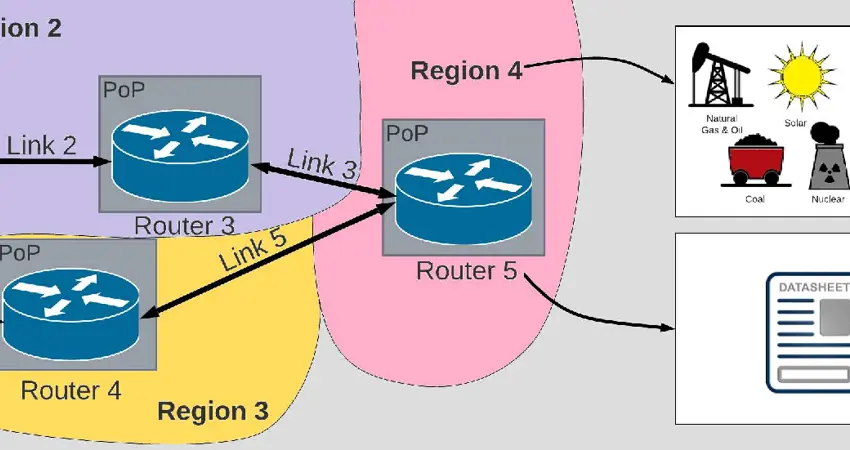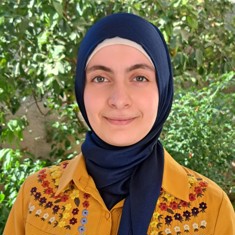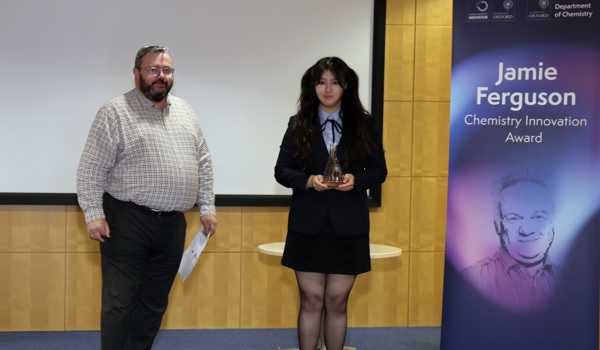12 Jan 2024
Computing Infrastructure group wins prize for work on sustainable networks
The team worked with BT to address the carbon emissions associated with Internet routing and introduce a Carbon-Aware Traffic Engineering approach

Sawsan El-Zahr from the Computing Infrastructure group has won the Internet Research Task Force (IRTF) Applied Networking Research Prize (ANRP) 2024 for work on sustainable networks.
The Internet Research Task Force (IRTF) promotes research of importance to the evolution of the Internet protocols, applications, architecture and technology. Their Applied Networking Research Prize is awarded to recognise the best recent results in applied networking, interesting new research ideas of potential relevance to the Internet standards community, and upcoming people that are likely to have an impact on Internet standards and technologies.
 The prize was awarded for the research paper "Exploring the Benefits of Carbon-Aware Routing", by Sawsan El-Zahr, Professor Noa Zilberman and Paul Gunning (BT).
The prize was awarded for the research paper "Exploring the Benefits of Carbon-Aware Routing", by Sawsan El-Zahr, Professor Noa Zilberman and Paul Gunning (BT).
The lead author, Sawsan El-Zahr (pictured left), is a second year DPhil Student at the Department of Engineering Science and a member of Somerville College.
To achieve 2050 net-zero carbon goals, we need to reduce the Internet’s carbon emissions. The work, carried out in collaboration with British Telecom (BT), addresses the operational carbon emissions associated with routing - which goes beyond assessing direct energy consumption. When considering the source of energy used by identical devices, carbon emissions will vary depending on their location and the time of measurement.
In addition, the team introduced CATE, a Carbon-Aware Traffic Engineering solution. It changes link costs based on energy- and carbon-related metrics and then further shuts down under-utilized links in a given topology network while maintaining network resilience. This approach was evaluated on two network topologies: British Telecom in the UK, and GEANT in Europe.
Results of the work show that the best metrics to use are a combination of the dynamic power of routers and regional carbon intensity. It shows that the idle power of routers has a major contribution to carbon emissions, and that simply changing the routing in a network will not be sufficient, unless routers are improved and become more power proportional.
Moreover, simulation results show that while traditional any-to-any Internet traffic can be optimized with this approach, streaming videos pose a greater challenge with minimum ability to optimize given the location of caches closer to the user. Application-specific solutions will be needed to truly green the Internet.
Exploring the Benefits of Carbon Aware Routing, Proceedings of the ACM on Networking & ACM CoNEXT 2023)
For internship and postdoc opportunities in this research area, please contact Professor Noa Zilberman.




